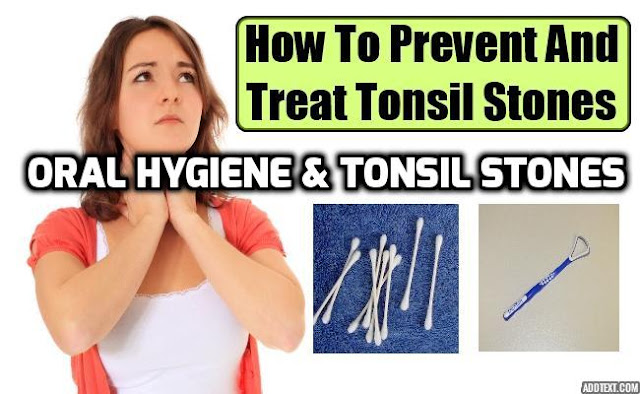 |
Tonsil
stones, also known as tonsilloliths,
occurs when cellular debris and food particles become lodged in the surfaces of
your palatine tonsils.
These
lymphatic organs are located on either side of the back of your throat and are
responsible for fighting pathogens and filtering lymphatic fluid.
Individuals
who do not maintain healthy oral hygiene routines are especially prone to
developing tonsil stones, as the build-up of debris in the mouth can clog the surface of
the tonsils.
Your
tonsils are covered by an external layer of pink mucosa, which contains pits
and crevices that are commonly referred to as the tonsillar crypts.
If
food particles and other residues accumulate in the tonsillar crypts, they can
combine with saliva and calcify into tonsil stones.
Poor
oral hygiene can allow oral microorganisms to thrive on accumulating food
particles, increasing your likelihood of developing tonsil stones.
To
reduce your risk of tonsil stones and to lessen their severity, make sure that you are practicing
an effective oral hygiene routine.
Regular
flossing and brushing can protect your teeth, gums, and throat from harboring
particles and harmful bacteria. Switching to an antimicrobial mouthwash can
help loosen and eliminate existing tonsil stones.
Additionally,
using a specialty mouthwash may also combat high levels of oral bacteria that
contribute to tonsil-stone formation.
Ultimately,
eliminating the cause of a health condition like tonsil stones is the best way to reduce its effects.
Implementing
effective oral hygiene habits can limit your risk of develop complications
related to tonsil stones, such as a chronic sore throat, earaches, swollen tonsils, and
persistent bad breath.
If
you are concerned about tonsil stones or your oral health, see your family doctor or a dentist. He or
she can examine your mouth and throat to determine the cause of your discomfort
and to suggest potential treatments.
If
any tonsil stones are visible, your doctor or dentist may remove them with a swab
or a pick. Additionally, your doctor or dentist can help you develop a healthy
oral-hygiene routine of flossing daily, brushing regularly, and rinsing with an
antimicrobial mouthwash.
If
these methods are not effective in reducing your tonsil stones, you may need to see an ear, nose, and throat specialist for
further evaluation and possible surgery.
Watch
this Video – Tonsil Stones Prevention | Home Remedies & Treatment
This article is based
on the book, “Tonsil Stones Remedy Forever” by Alison White, an ex-sufferer of
tonsilloliths, also known as tonsil stones.
Tonsil Stones Remedy
Forever is a guidebook that teaches you everything you need to know to get rid
of painful, pesky and inconvenient tonsil stones without surgery.
This is a 7-day
schedule to get rid of tonsil stones using natural remedies that are tried,
tested and proven to work. If you are ready to take control of your health and
to make the right decision regarding your tonsil stones, then click on Tonsil Stones Remedy Forever.